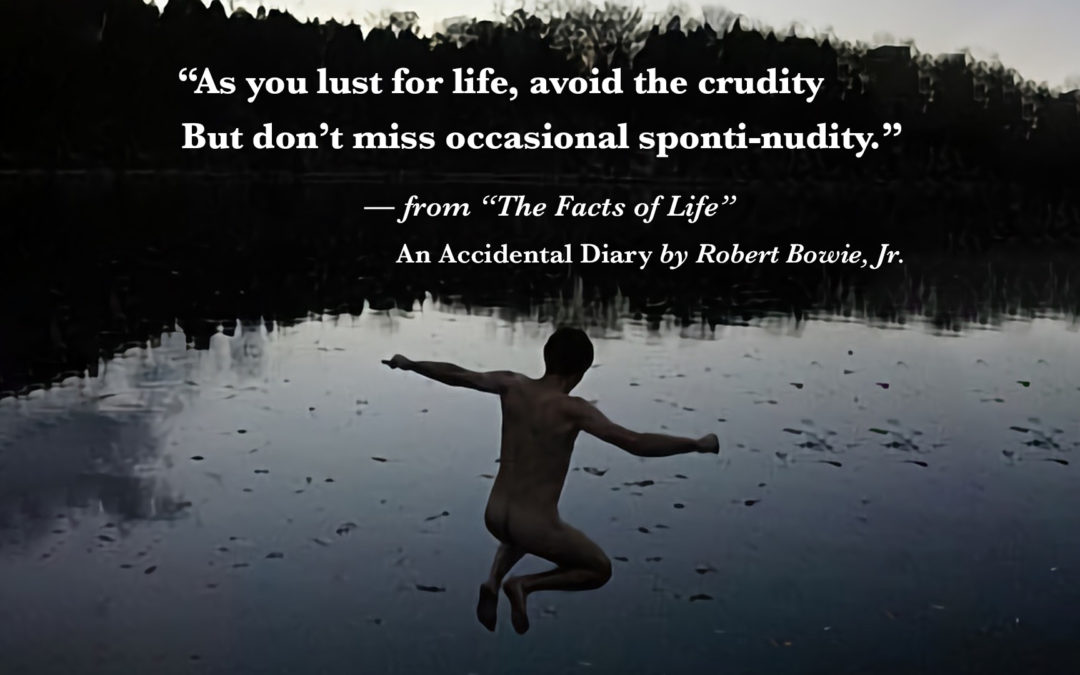
by Robert Bowie, Jr. | Jul 19, 2022 | Featured, Personal, Poetry
…Out of the rain of last week.
I’m back to work. Watch me pitch.
As a child growing up in New England I quickly adopted “Yankee entrepreneurship” and I completely embraced “self-reliance,” which required me to not work for others during summer vacation in case I felt an urgent need to go to the beach.
One summer back in the late 1960s, two high school friends and I started the “Right On House Painting Company.” This was a highly independent entrepreneurial effort.
Our advertising amounted to a forceful announcement of the company name followed by the lifting of our right fist to the sky and pledging solemnly: “Right On”!
We were, of course, saluting latex paint.
Because we were under-funded and had to keep the overhead low, we lived in an old barn off of Upper Lambert’s Cove Road, which we rented from a local commercial fisherman who had at least twenty cats and had been drunk all winter.
We struck a deal for $15 a week rent if we would help him remove the long johns he had been wearing all winter.
Despite the bargain rent, he got the better deal.
We cleaned out the barn and divided it into quadrants so each of us had a room and there was a room left for eating, drinking and entertaining.
It was our “green” corporate headquarters.
We had no running water but refused to live without elegance, so we built an outhouse in a birch grove with a white wicker chair with the bottom cut out of it. We were proud to be feeding the birch trees.
We were way ahead of our time.
We bathed nearby in Ice House Pond — pretty much always at night so we didn’t get our bathing suits wet.
To reduce automotive and travel expenses, we generally hitchhiked with a can of paint and a brush in one hand and our thumb extended from the other in order to get to work.
It was also an early form of targeted corporate advertising, since we ended up meeting everybody on Martha’s Vineyard over the summer.
Every ride was a job interview from the passenger’s seat, but it didn’t matter because we were on your way to work anyway.
Our corporate mission statement required that on sunny days we went to the beach. On rainy days, we played poker. On hazy days we painted houses.
We made good money.
When asked about our profit margins we would announce: “Enough is as good as a feast” and drop our eyes and lift our fist to the sky.
My entrepreneurial spirit has never died.
I have avoided being an employee over the last several decades by starting a law firm and retiring to become a poet and here I am selling my book… but man do I have a deal for you!
It’s all about how you look at things.
Don’t look at this book as poetry — everybody hates poetry and a book of sonnets is worse.
But! If you look at it like sort of a Bible written in rhyme and rhythm or maybe just “Easy Go’n Bob’s Book of Random Wisdom,” then why not?
Keep it where you can read just one sonnet at a time uninterrupted. Like the bathroom. Or a wicker chair with a hole in it. I’m not proud.
Consider the sonnet entitled “The Facts of Life,” obviously composed for future generations.
———
The Facts of Life
I swam, back then, with some father’s daughters,
Back stroking only slightly out of touch,
Out to the raft in the starry waters
And never thought of their fathers all that much.
My child, don’t judge me till you’re fifty-five
But there were midnight visits to “Ice House Pond,”
In my misspent youth, when I was still alive,
Where couples would strip, and swim and then bond.
And my child, this I know for sure is true:
At seventeen we all are born to be free
But ’cause I’m your father and I love you
Please consider this seasoned advice from me:
As you lust for life, avoid the crudity
But don’t miss occasional sponti-nudity.
———
Get it in softcover or on Kindle I don’t care. Get a copy and after you have read it, give it away. Spread the word. That is all I want.
It’s sometimes a little scary and sometimes a little sad and often about self-reliance, defiance, a second life, and “which way is the beach?”
Right On!
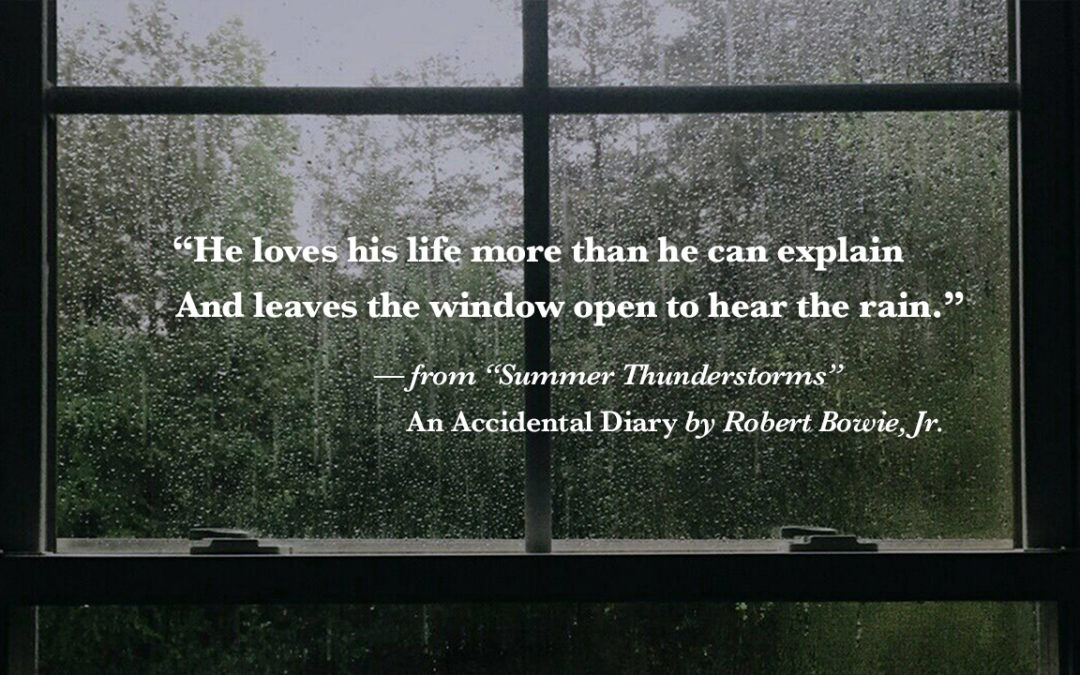
by Robert Bowie, Jr. | Jul 12, 2022 | Featured, Man Machine, Personal, Plays
This morning was hard. I woke up and it was raining. Over the last month, I have been coming to recognize a hard truth — which I finally realized this morning.
Over five years ago, I started this blog to force myself into a weekly discipline, to improve my writing skills and to explore how I could start a whole new career after retirement from a very happy first career as a lawyer.
My whole life I had quietly wanted to see if I could create a life as an artist.
After writing 10 plays for the wonderful little theaters in Baltimore, I decided to see if I could break into New York professional theater and I committed to writing and publishing poems.
I took classes at the New York Commercial Theater Institute and was fortunate to be accepted into the poetry program at Bread Loaf in Vermont.
All of a sudden, it was starting to happen, this improbable dream of mine.
My play “Onaje” was selected by FringeNYC in 2018 and, after great reviews, got picked up and nurtured by a NYC producer. After the rewrites and several table reads to make it a more fleshed out two-act play, “The Grace of God & The Man Machine” was ready.
But then COVID hit in March of 2020. The theaters shut down just as we were waiting to open off-Broadway.
Then in February of this year, we were ready again. We planned to open off-Broadway in November 2022 for a one-month run at Theatre Row on 42nd Street.
Also this year, I published “An Accidental Diary: A Sonnet a Week for a Year,” so we were on our way.
The dream was coming true!
But then, a month ago, COVID struck again and the producer went out of business after 15 years of producing successful shows. Even still, the producer offered the use of the performance space if I could find a new producer with such short notice.
This seems like an impossible task. I looked in the mirror this morning and I said it: “This lifetime dream may not happen.”
But then I realized, I’m not ready to give up just yet. Somewhere out there, there may be a partner, or a resource, or some other way to make this happen.
I turned away and looked for a diversion, for good news to chase away this awful gathering sadness.
Well, last week I learned that, along with my sonnet “Summer Thunderstorms” being chosen a runner-up for the Robert Frost Foundation poetry contest this year, “City Snow” had been included in the “Maryland Bards Poetry Review 2022” anthology. Both poems are from my book, “An Accidental Diary.”
I sat down by the window and opened my little book and reread “Summer Thunderstorm”:
Summer Thunderstorms
As with the generations long since dead
The fire and brimstone of the status quo
Wakes him up from the safety of his bed
And lightening frames him in the window
And photographs him in its afterglow.
Tonight he feels his present and its past
As the summer storm also comes and goes.
Conclusions are foolish in a world so vast.
For at the edges of his world and heart
Far past the farthest boundary of his grasp
Where ideas cause worlds to come apart
He lives in this place that will not last.
He loves his life more than he can explain
And leaves the window open to hear the rain.
I opened the windows to hear the rain.
After I looked out at the storm for a little while, I got a fresh cup of coffee and started writing this. I have stuff to do. It’s time to get back to work.
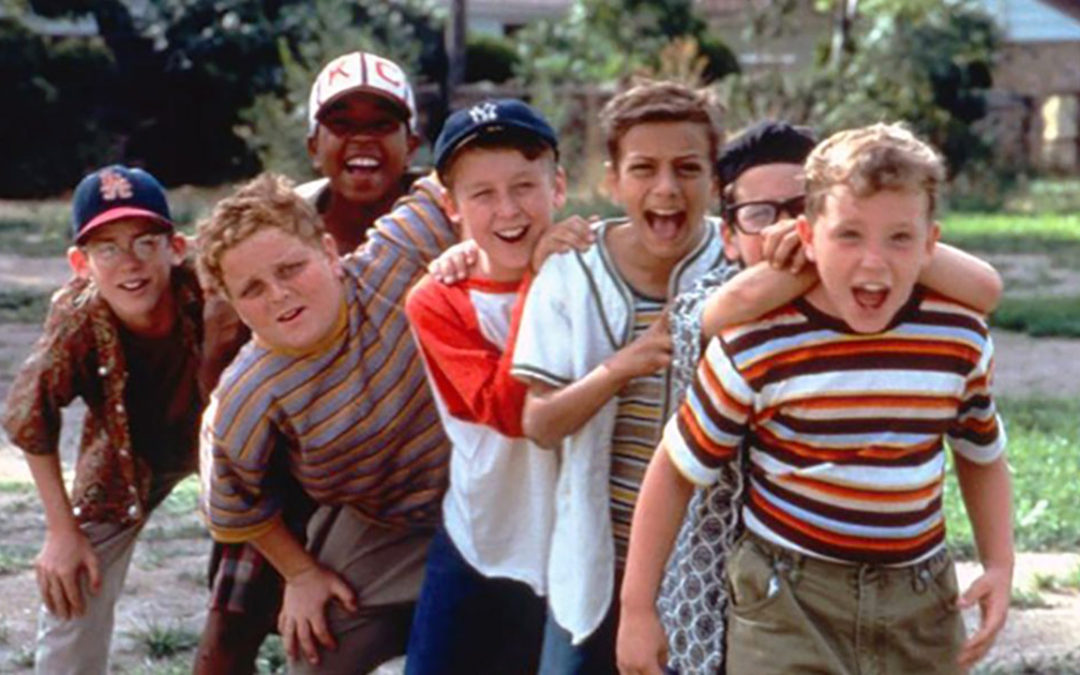
by Robert Bowie, Jr. | Jul 5, 2022 | Featured, Personal
This is a 4th of July American love story straight from my heart. It doesn’t go where you might expect.
In 2014, I sold my controlling interest in the law firm I had created in 1990 and ran for state delegate because I was terrified by the emerging polarization of our country. I lost in a gerrymandered jurisdiction. I never had a chance.
As a child, I hitchhiked through 40 states and met strangers from endlessly different backgrounds and every walk of life.
Back then my rides often came from soldiers who had hitchhiked around the country themselves after the Second World War. They stopped their lives to offer me kindness with no thought of anything in return.
A ranking officer in a top-down convertible drove me into Paris Island, the US Marine training facility, because I could get a carton of Camel cigarettes for 15 cents a pack at the PX. The marching soldiers saluted the license plates as we entered and as he returned me to the road.
I came to understand the unspoken secrets of a country that preached justice and equality but had built its wealth with slave labor on stolen land.
Although we often agreed to disagree, my rides and I shared a national pride. This country had saved a dividing world from fascism and had recently passed legislation like the Civil Rights Act of ’64 in an attempt to correct our world at home.
As I traveled shotgun, I learned to listen. That was my job.
We talked and they would tell me about the joy and sadness and insecurity they could not tell their wives. I learned so much from them.
Every ride contained an unspoken understanding that we would never meet again.
The growing polarization that has been dividing us now for years has slowly broken my old hitchhiker’s heart.
This 4th of July, my children came home with their loved ones and their children. Last night, we decided to revisit an old movie which they loved to watch each year on the 4th: “The Sandlot.”
Because I’m deaf now, I sat in a chair up front facing the TV, my back to them, my face hidden from them as I looked up at the screen.
It is a baseball movie about kids growing up in the late ’50s or early ’60s. It is nothing but foolishness but it holds the beauty of a united America that believes in Babe Ruth, the innocence of juvenile behavior, and baseball as a national pastime and religion. James Earl Jones is the linchpin of redemption just because he is, not because it is politically correct.
Sitting with my children and their loved ones and their children behind me, I could cover up ever so gently my unexpected tears as they came.
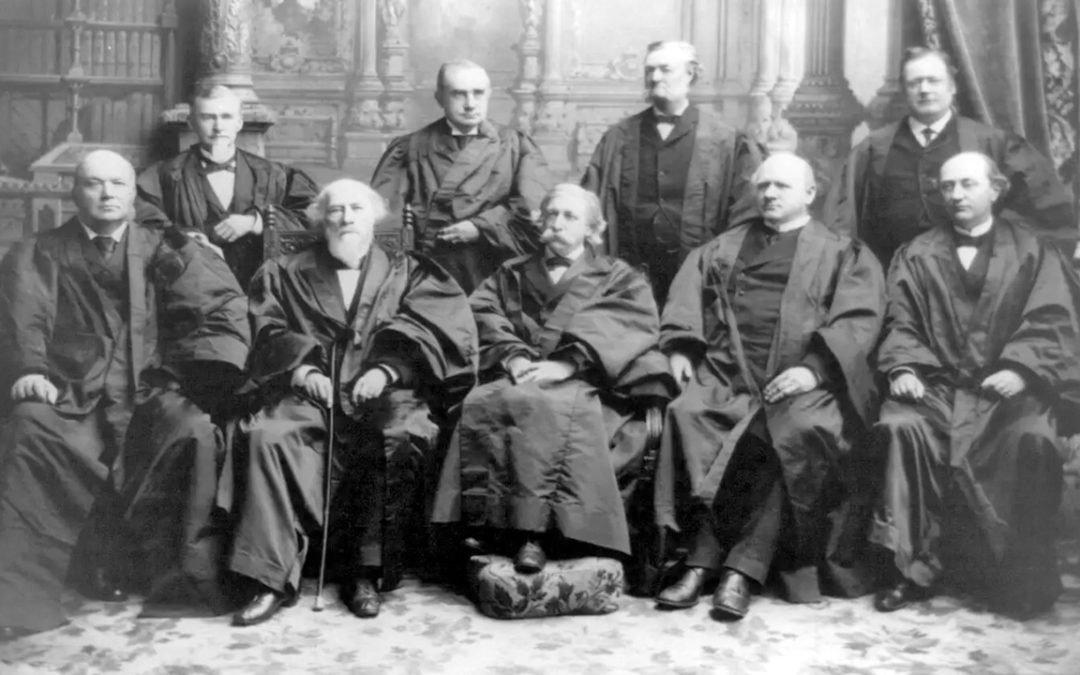
by Robert Bowie, Jr. | Jun 28, 2022 | Featured, Politics
I am willing to admit I’m a moron but who the hell are these “originalists”?
Supreme Court Justices Amy Coney Barrett, Clarence Thomas, and Brett Kavanaugh have all identified themselves as “originalists,” but it now looks like Alito and Gorsuch do too.
So what do these originalists believe?
Justice Amy Coney Barrett, when asked that question at her confirmation hearings, said: “I understand it [the Constitution] to have the meaning that it had at the time people ratified it. So that meaning doesn’t change over time and it’s not up to me to update it or infuse my own policy views into it.”
Okay, Let’s look at some history.
Since the originalists say they must interpret the Constitution based on the time it was ratified rather than interpret the evolution of the historical wisdom it has grown to contain, there is some “originalist” history that they may have overlooked.
The “originalist” history, back when our Constitution was ratified in September of 1787, means: (1) women could not vote or own property, (2) Black people were slaves and didn’t qualify as “people” and (3) interracial marriage was a crime that would get you jail time.
An originalist interpretation of the Constitution, if applied to the present membership of the Supreme Court, would eliminate two-thirds of the “originalists,” as well as a majority of the entire Court.
So Amy Coney Barrett should not vote and should surrender all property she owns and drop out of the Court. And what should they do about Clarence Thomas, or his marriage?
But it gets even more absurd and worse for the fantasy logic of these originalists:
“A Law repugnant to the Constitution is void,” wrote Chief Justice Marshall, the first Chief Justice of the Supreme Court, on February 24, 1803 when, in Marbury v. Madison, he declared unconstitutional a law passed by Congress and signed by the President, based on the Supreme Court’s right of “Judicial Review.”
Nothing, absolutely nothing in the Constitution gave Chief Justice Marshall and the Supreme Court this specific power of judicial review. It is not in the Constitution anywhere.
Marshall, however, believed that the Supreme Court should have a role equal to those of the other two branches of government, so he interpreted the “intent” of the Constitution even though the words were not in the Constitution.
So how can the “originalists” have any basis to review anything?
I’ll tell ya.
As an Economist correspondent recently pointed out, “5 of the 6 conservative Supreme Court justices were appointed by a Republican Senate majority that won fewer votes than the Democrats” and “3 of the 6 were nominated by a President who also won a minority of the popular vote.”
So where are we now?
Are we a democracy? Are we a republic? Or is this when we lose all that? Have you been watching the January 6th hearings?
The billionaire President who appointed three of these originalists, managed us for four years with lies and Twitter and, after he was voted out, more lies in order to organize an attack on our government based on the Big Lie of a stolen election, and all these lies were affirmed by Fox (not at all) News, Ingram and Carlson.
Isn’t it time to start the long hard revolution to take our country back?
The midterm elections have to be that revolution.
If the Trump support, the originalists, and Fox News win the House and the Senate for Republicans in the midterms, those Republicans will continue their coup d’état and attempt to overthrow our democracy. They have made no secret of this.
America has evolved beyond the originalists. We freed ourselves from a king once before. We freed the slaves. We recognized women’s right to vote. As a democracy we have created a history of humanitarian change, and are capable of great creativity and the capacity to govern with a big heart when we are not divided.
Let’s get back to being the US Again.

by Robert Bowie, Jr. | Jun 21, 2022 | Featured, Personal, Politics, Travel
In our class, the poet Elizabeth Bishop would teach poetry by taking any two poems and placing them side by side to see how they “illuminated each other” by comparison and contrast.
It was an exercise in both observation and communication but it also offered that fresh perspective on what was set in stone and had been taken for granted.
The more extreme the comparison and contrast the more it reawakens: A ripe apple and a red sports car? What makes them red? What makes them different? What makes them go? DNA and water versus oil and a gas engine?
How about like “politics” and “scuba diving”?
Let’s try it.
Well first, in contrast, they encompass two different worlds. One above water and one below. However, people have learned to communicate in both worlds, particularly in life-threatening situations.
How is that communication the same and different, and how can it offer a fresh perspective?
Through communication in politics, Donald Trump raised a quarter of a billion dollars ($250,000,000.00) from small dollar contributions from his supporters to “stop the steal,” despite overwhelming evidence that nothing got stolen. Furthermore, he has convinced his supporters not to watch the January 6th Committee hearings where this was revealed and validated.
So you can’t use Twitter underwater.
But in scuba diving you have hand signals, which is a little more primitive but just as effective for short urgent messages.
All diving is done in at least pairs with each diver responsible for his or her buddy. If you go too deep and become a victim of nitrogen narcosis — which is the song of angels calling you to come deeper to your death. Your buddy should grab your fin and signal with a hand gesture indicating the cutting of one’s throat and then point to the surface. It’s life or death.
During one dive in the outer islands of the Caribbean, I was randomly paired with two Midwestern middle-aged men who already were friends.
We agreed to go down to about 90 feet and swim in formation, like airplanes, to cruise along the deep edge of a cliff overhang and be each other’s eyes and ears.
One of my new buddies, our wing man at the time, banged his knife on his tank to get our attention, made eye contact, and excitedly pointed straight down. He spread his arms way out wide, gave the finger to us, and then put his right hand on his head at a 90-degree angle as if it was splitting his head in half down the middle with an ax. The other two of us got it and looked down into the dark for a “Big Fucking Shark!”
Later that afternoon, sitting side by side with me at the bar, my two Midwestern buddies good-naturedly unloaded all the liberal Democrat jokes they had in rapid fire in my direction, and with mock astonishment I countered them with my defenses and went on the attack. Quite naturally we had come to trust each other with our lives underwater, using sign language which we made up as we went along. We were friends.
I would love to meet them again and learn from them again and laugh. I want to sit on that barstool, turn to look at them and, with a perfectly timed pause, stop deadpan and say: “TRUMP???” And then spread my arms out wide, give them the finger and put my right hand on my head at a right angle as if it was splitting my head down the middle with an ax. I’d love to have them laugh at that, for us to laugh together.
I want to laugh with my Republican friends again and have us trust each other again with our lives.
It beats drowning in an angel’s call.
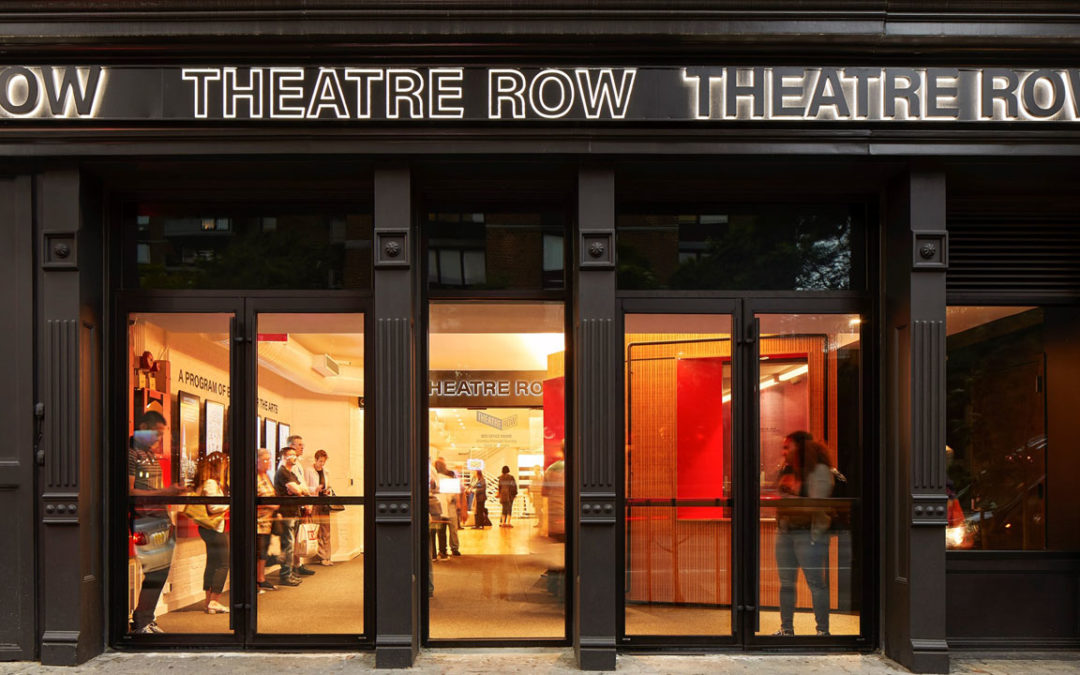
by Robert Bowie, Jr. | Jun 14, 2022 | Man Machine, Personal, Plays
I opened the New York Times last week and turned to the theater section and read the headline:
“Dear Evan Hansen’ and ‘Tina’ to End Their Broadway Runs
“The musicals, both of which lost steam after the pandemic shutdown, will close in late summer.”
The article pointed out that before the pandemic Evan Hansen was making $1 million a week in sales but now, because of Covid, successful plays were again falling by the wayside. Tina, about the life and music of Tina Turner also had been doing very well.
Over the last two years, as I watched New York theaters close and reopen and struggle to sell tickets, this kind of news had become the soundtrack of my life. I was used to it by now.
I turned to check my email and noticed an email from Mind the Art Entertainment (MTAE), the producers for my play The Grace of God & the Man Machine, scheduled to open off-Broadway on November 21. It read:
It is with great sadness that I announce that I, as Founder and Resident Artistic Director of Mind The Art Entertainment, have formally submitted a recommendation to our Board to close our company after 15 years.
Producing in NYC is no longer viable for us after so many losses related to the pandemic, including 6 cancelled/closed back to back productions.
This can not be happening!
Almost two years after the remarkable success of a Onaje — my 90-minute one-act at FringeNYC in October of 2018 — after MTAE became its producer, and after several rewrites and three professional table reads lead by dramaturg/ director Kevin R. Free, we had a two-act play with an explosive finish. It ran fast and smooth like a river to a waterfall. We were ready.
Then, after that last table read in March of 2020, the pandemic hit and we all had to wait but we were ready.
In October of 2021, we were surprised and blessed to be offered a virtual trial performance directed by Van Dirk Fisher at the Reliant Theater, who was doing cutting-edge online productions to expansive theater-starved online audiences. It was well received.
We were so ready and this play was perfect for the politics of its time. Its time was now.
Early this year, it appeared that New York theater was opening up, and MTAE booked Theater Row for November to open a week-and-a-half after the midterm elections. That would be perfect.
Now, after almost four years of anticipation and preparation, we have a road-tested redemptive two-act play, rich with true American characters, timed to be performed in November after the midterm elections, but Covid variations were again on the rise.
And just like that, it is over.
The producers sent heartbroken apologies to everyone and have even offered to transfer the off-Broadway lease at Theatre Row free to support a new producer, but it will be next to impossible to mount the play unless a new team is in place by the end of this month.
Yes, I am heartbroken.
But throughout my whole life, I have been blessed by the opportunity provided by crossroads and disasters.
If you are a professional producer for New York theater, or if you know someone who is, just let them know I’m not dead yet and I would be happy to send them the script — but two weeks may not be enough time. (You can click the Contact link in the menu.)
Yes, I know it is almost impossible. But as Hamlet says, “the readiness is all.”
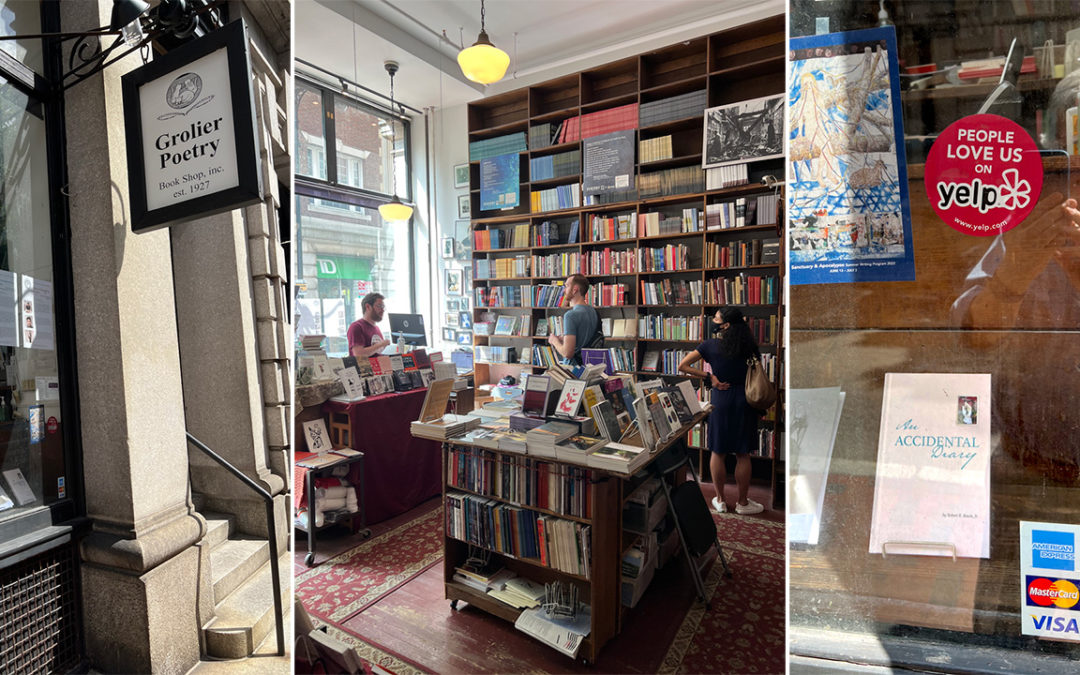
by Robert Bowie, Jr. | May 31, 2022 | Featured, Poetry
As a young boy, I lived in the sports pages and played on sandlot baseball diamonds after school. I dreamed about the big leagues. My dreams and my future were one.
As a young man, things became a little more complicated.
I couldn’t really hit a curve ball and I started noticing that the second question that people asked grown-ups after their name was “What do you do?”
Businessman? Doctor? Lawyer? With high school, a wider and more terrifying world was opening up.
I stumbled on T.S. Eliot and his poem, “The Love Song of J. Alfred Prufrock,” in which he wrote about the early 20th century. It is set in Boston’s Beacon Hill.
It seduced me from my fading childhood into my predestined future with its opening lines:
Let us go then, you and I,
When the evening is spread out against the sky
Like a patient etherized upon a table;
Ezra Pound pronounced this poem as “modern” — part of the dark reality of the new century and its new poetry. And so it was for me, standing there, in the Grolier Poetry Book Shop with J. Alfred Prufrock in my hand, a freshly minted teenage groupie at a one-room bookstore with towering bookcases.
Grolier was intimidating, but it held a world of new alternative heroes as I was losing my childhood and falling into the shadows of some job that would define me when asked “What do you do?”
How did this happen?
Posted on the front door of Grolier Poetry Book Shop was a blunt sign: “No Law. No History. No Economics. No Biology. No Physics. No Chemistry. Only Poetry!”
Gordon Cairnie, one of the founders, would sit on an old couch and hold court with published poets who were different in every way than the people I knew.
He waited for some unsuspecting student to walk in and ask if the store sold law books or the like.
Gordon would unload on the innocent walk-in and turn all the heads of the browsing readers when at the top of his voice he would answer, “No! But what difference does it make to you because you can’t even read the sign!”
Everyone would laugh in this freshly reconsecrated space and the young student was sure never to return again.
The point of entry to this new world was the “dare to be different” commitment to admit out loud that you were a poet and a believer, not a tourist.
I was way too shy.
This was a lot different than sandlot baseball, but within it there was still room to dream.
Over the years, the Grolier had become a focus of poetic activity in the Cambridge area, itself a magnet for American poets because of the influence of Harvard University. Poets such as John Ashbery, Robert Bly, Robert Creeley, Donald Hall, and Frank O’Hara were regulars at the store during their time as undergraduates at Harvard. The poet Conrad Aiken lived upstairs from the store in its early days.
Numerous other poets and writers are noted as “friends of the Grolier,” including Russell Banks, Frank Bidart, William Corbett, E. E. Cummings, T. S. Eliot, Lawrence Ferlinghetti, David Ferry, Allen Ginsberg, Denise Levertov, Marianne Moore, Charles Olson, Robert Pinsky, Adrienne Rich, Ruth Stone, James Tate and Franz Wright, to name just a few.
The bookstore claims to be the oldest continuous bookshop devoted solely to the sale of poetry and poetry criticism.
This September it will be 95 years old.
I was committed to keeping up with the rest, going to law school and succeeding — and I did. But I couldn’t forget the voices at Grolier and my prior fear of admitting out loud I wanted to be a poet.
When my travels would lead me to Boston, I would always go back to make sure it was still there. I would always buy a book or two to justify my visit and my love of lounging there for awhile.
Last Saturday, I was in Cambridge. I brought two copies of my first book of poems, An Accidental Diary, to give to friends I planned to see.
That morning in the hotel room, an idea hit me. I looked up the Grolier Poetry Bookstore and before I let better judgment kick in I called and asked for the proprietor, James Fraser. I told him I had two copies of a book, explaining one poem was runner up for the Robert Frost Foundation Poetry Award and another had been chosen for an upcoming anthology in Baltimore. I asked him if he would consider putting them up for sale on the shelves.
I told James I had been going into the bookstore for over 50 years and had studied with Professor William Alfred and Elizabeth Bishop whose books were on the shelves and pictures on the walls.
He invited me to drop by. I immediately walked my two books over and told him more of my story. I encouraged him to read “Summer Thunderstorms” and “The Facts of Life” to show the range of the work.
He leafed through the book as we continue to talk. There were a few people browsing as there always are and I took a moment to take a deep breath and just be surrounded by the place.
James looked up and smiled. He took both books out of my hand, looked up at me again, took one for the shelf and then put one book prominently in the front window.
Things this wonderful don’t really happen in real life but sometimes they do.
When I walked back to the hotel empty-handed looking down at the pavement with a stupid grin on my face, I felt like I had circled the bases on the sandlot!
I had always dreamed about the big leagues. But after a very long time my dreams and my future were again one.
(“An Accidental Diary” is also available on Amazon in paperback and Kindle.)
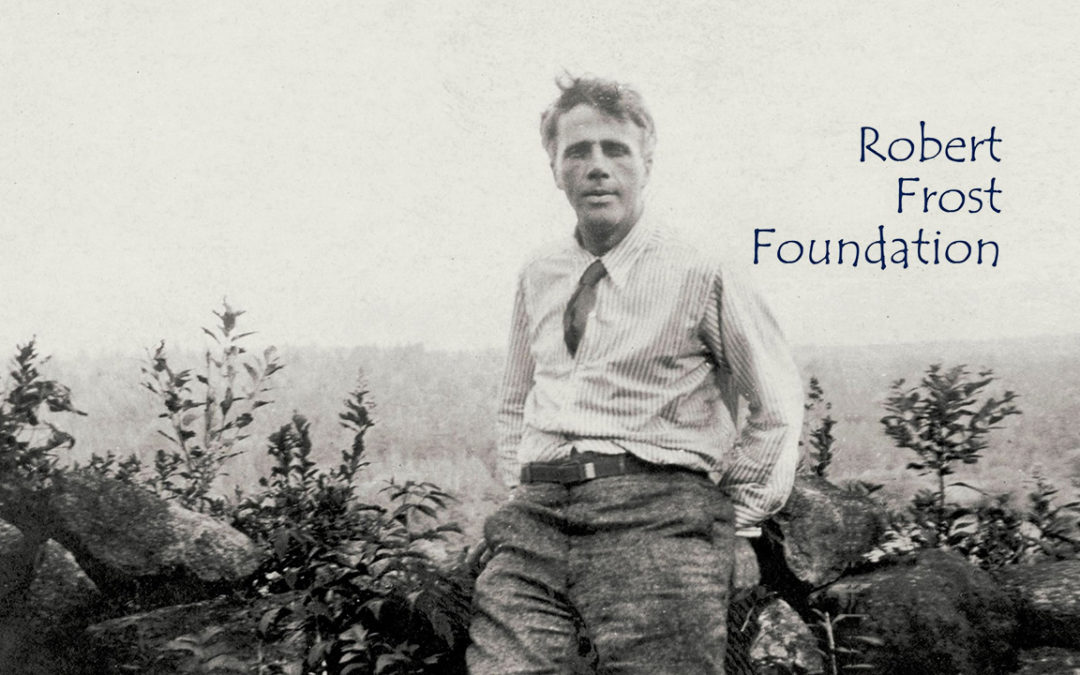
by Robert Bowie, Jr. | May 17, 2022 | Personal, Poetry
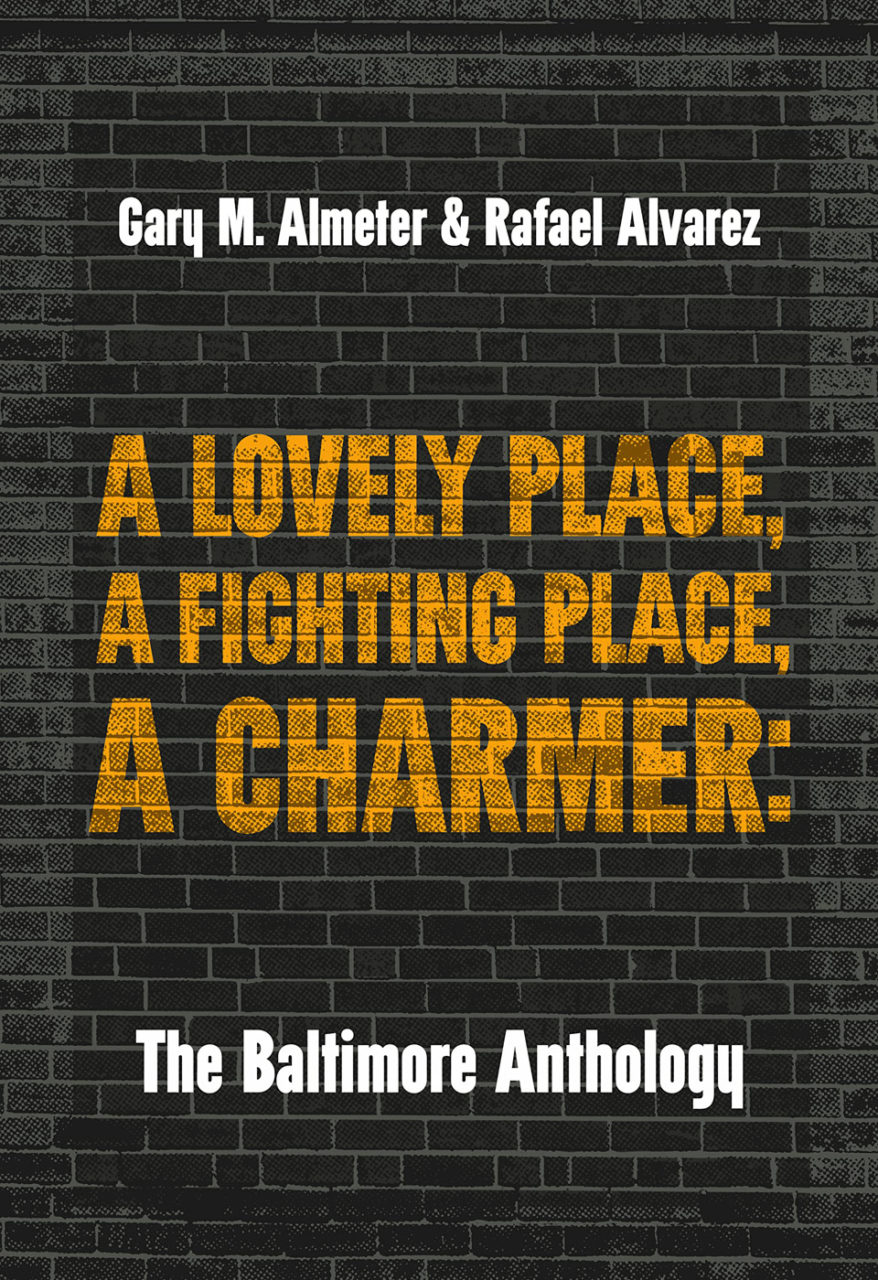
I started this blog several years ago in an effort to explore if there could a professional life in the arts after a full and satisfying first career.
Yesterday, I was notified that I had been chosen as a runner up for the Robert Frost Poetry Award for 2022 for my sonnet, “Summer Thunderstorms.” and last month, my sonnet, “City Snow,” was chosen to be included in the upcoming Belt City Anthology: A Lovely Place, A Fighting Place, A Charmer: The Baltimore Anthology.
Both entries are from my book, An Accidental Diary: A Sonnet a Week for a Year.
Help me celebrate and prove that there is the second life, after all!
Please buy a copy of these books and give them away, and ask that they be re-gifted by order of the author.
Here is the Robert Frost Foundation entry:
Summer Thunderstorms
As with the generations long since dead
The fire and brimstone of the status quo
Wakes him up from the safety of his bed
And lightening frames him in the window
And photographs him in its afterglow.
Tonight he feels his present and its past
As the summer storm also comes and goes.
Conclusions are foolish in a world so vast.
For at the edges of his world and heart
Far past the farthest boundary of his grasp
Where ideas cause worlds to come apart
He lives in this place that will not last.
He loves his life more than he can explain
And leaves the window open to hear the rain.
“Week 35” from An Accidental Diary
(Available now on Amazon in paperback and Kindle.)
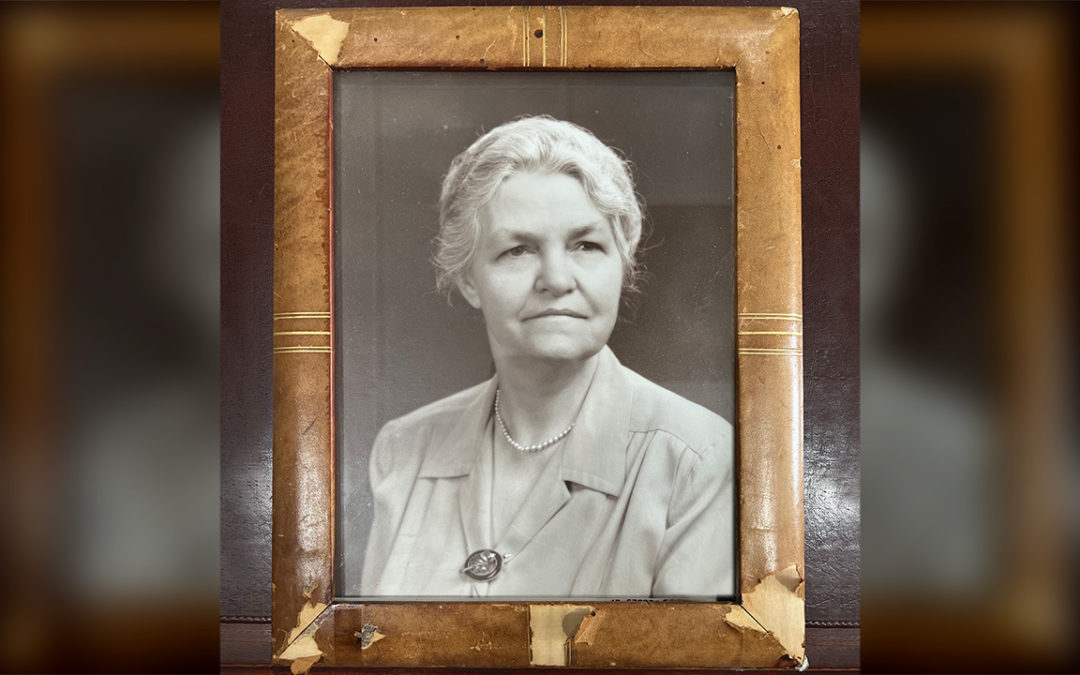
by Robert Bowie, Jr. | May 3, 2022 | Featured, Personal
Last week I posted a piece about my mother and how my grandmother would whistle her chickens home long ago on a farm on the eastern shore of Maryland and how my mother, not quite so long ago, used the same whistle to call her children.
My grandmother was the only grandparent I would know. She lost her husband and the farm when my mother was still in high school.
Even though we always lived far apart I remember as a small child feelIng our inexplicable mutual affection when I would wish her happy birthday or Merry Christmas each year over the telephone.
Both my grandmother and my mother had a kindness that children almost Intuitively recognized as safe.
While the schools taught reading, writing, arithmetic, and how to compete in the modern world, my mother and grandmother’s universe was quite the opposite. It was more gentle. They focused on the wellbeing of those they loved. Their world was often damage control.
I was lucky to have known them.
In fourth grade the family moved back to Boston from Washington, and I started my 4th new school in four years. That summer I had developed a temperature of 104 and was taken from Randolph New Hampshire down to Mass General hospital to see Dr. Gross, a specialist in children’s lung problems.
The lower lobe of my left lung was removed which delayed my entrance into a new fourth grade class in which I would already be far behind because of the learning issues that had followed me from Washington.
The following summer I had to meet with tutors every day in order to be bumped up to the fifth grade, I had finally given up on school and slowly started to recess into myself and my gathering emotional despair.
In August, I got a break from the tutoring before fifth grade started.
The next thing I knew, I was scheduled to visit my grandmother in Chestertown, MD for the first time.
My grandmother was in her early 70s and lived alone in one of two small apartments on the 4th floor in an old building next to the bridge over the Chester River, which brought slow moving cars and rattling trucks in and out of Chestertown.
That first evening together, we ate a simple dinner on the card table. Then we went down the fire escape to the backyard with a jar with ice pick holes for air in its tin screw top to catch lightening bugs. Later, when the lights were out, they would be let loose in my room.
Like her daughter, Granny — which is what she wished to be called — had the softest paper-thin skin as she aged but maintained rough dishpan hands, which were perfect for back rubs.
I remember that first night being tucked into bed in an envelope of fitted sheets all alone in the darkness with the lightning bugs.
Somehow my tension disappeared into a quiet world that was my grandmother’s domain.
The next morning she vested me with adult authority. After an early breakfast of griddle cakes with maple syrup, grits, and kettle tea (kid’s tea — milk and sugar but no teabag), it was unspoken but somehow understood that I would be carrying my side of the responsibility by doing the dishes.
At breakfast she planned our day. We would be walking into town to do her errands and I would buy a simple fishing pole, some hooks, a tin pail to hold a small pocket knife, extra lines, some worms, and a red bobber that would flip over and pop up if I got a bite from one of the catfish that the old men routinely pulled out of the Chester River from off the bridge.
Granny had this uncanny ability to create an adventure and treat it like the business of life. She told me not to bother the old men who were fishing but be nice to them if they talked to me.
The men left me alone but they had stopped laughing together and focused on their fishing quietly as they occasionally would look over at me.
As I caught nothing, they caught several big catfish and I was envious. Slowly one of the men came over and asked if I would like some advice. I politely said yes and he pulled in my line, replaced my worm with bait from his pail, put on a sinker, and let the line drop into the brown water until it hit the bottom. Then he reeled it up so that the bobber would react to bites from where the catfish lived.
At the end of the day when everyone left the bridge, I left with them.
Midway through dinner, I proudly announced that I had made a friend. Without looking up, Granny asked, “was I polite?“ I assured her I was, which added to my sense of accomplishment, but I told her I did not catch any fish.
She said that she had done all the shopping that was necessary for our week, so I should be sure if I caught a fish to make sure that I gave it to my new friends. After dinner, and after I had done the dishes, because the sun had not yet gone down, we played slap jack on the folding table and I got pretty good at slapping jacks.
As the sun went down we repeated our collecting of lighting bugs for the room, and the next morning I repeated the day before, but this time with a little more self-confidence. My grandmother told me to leave my windows open so the lightning bugs could rejoin their friends before the next upcoming night.
The men were already on the bridge when I walked up to join them with my pail and fishing rod, and they welcomed me. They clearly had been talking about me after I left them the day before.
I was proud that I had been polite and that they seemed to like me. Within an hour of meeting them, I caught a fish and it was pretty big. They showed me how to remove the hook from the big catfish’s gaping mouth and I dropped it into one of the burlap bags.
The friendships increased into gentle humor, which was respectful on all sides but fun. That night we repeated the night before except my grandmother was laughing when I returned home, because she said that her downstairs neighbor had stopped her on the stairs to let her know that I had slapped a jack so hard the pendulum had come off of the grandfather clock in the apartment below.
I went back to school that fall and continued to fail, but I was less hesitant to call my grandmother just to talk but never to complain. We never talked about anything important but somehow we did.
Later that year, my mother left Boston hurriedly one morning to go down to Chestertown and I grew worried but couldn’t speak.
When I got home from school, my father was waiting.
I told him I was worried about my mother. I wanted to call my grandmother but he took me into the living room and held both my hands in his and said, “you can’t call her now. She has died.“
That was well over 60 years ago. We would both be about the same age now.
Even now, there are still times when I feel that I want to call her but somehow I can’t seem to find the number.
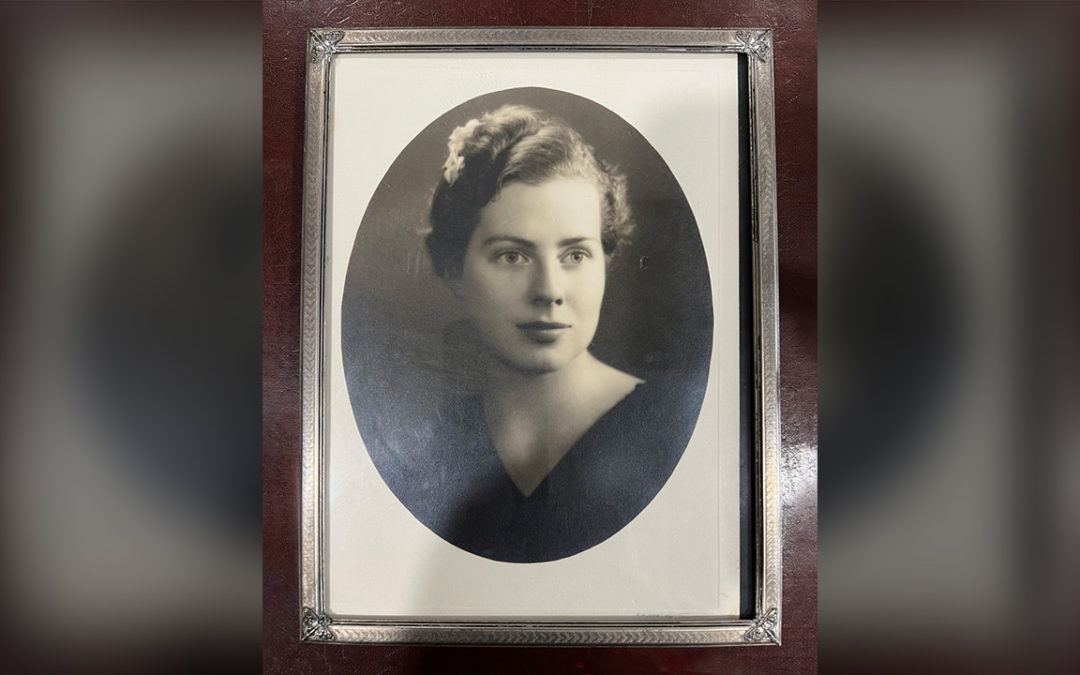
by Robert Bowie, Jr. | Apr 26, 2022 | Featured, Personal
My mother was a quiet country girl. Even in the suburbs, she used the exact same whistle that her mother used to call the chickens when she wanted us home for dinner.
She married a strict but loving patriarch and had two sons. The three males all believed they were the center of the universe. When she died almost 15 years ago, she left an unexpected void in her place.
The three men she left behind slowly came to recognize she had been our gravity. I don’t think I could have understood her while she was still alive. I think she knew that.
The year she died, she gave me a large steamer trunk, which she told me she had filled with the flotsam and jetsam of my very “learning disabled” childhood. She told me she had saved everything, beginning with kindergarten through when I passed the bar exam and she pronounced I was on my own, “because finally you will never have to take another test again.”
It had been our war, which we fought side by side, against a world eager to write me off, forget me, marginalize me and perhaps us. Because I did not wish to return to that nightmare, I was never ready to open that box.
My mother had no fear of time. She had endless patience.
Because we lived in a patriarchy, we knew all about our family name, with its politicians, governors, distinguished lawyers, and Maryland history. But my mother‘s family of farmers and merchants on the eastern shore of Maryland with its southern roots was rarely discussed.
The year before she died in her mid-90s, she asked me to drive her down to Church Hill, Maryland, where her family of Chapmans, Valiants, and Faithfuls were buried around a small church in an agrarian tidewater town. She said she wanted me to see where she had come from. She had already given me the box by then.
As I recuperated from surgery over the last few weeks, I kept looking at that box. Last Sunday, I opened it.
As I gently pulled back the wrapping paper, I was surprised to find more than I expected. There were pictures of her relatives and ancestors who I had never really known. On the back were the names and dates and a few sentences about who they were and how they connected to my mother and our family. As I put the pictures up on the table and found them staring back at me, her life slowly formed around her in a way that included me.
I noticed that I looked like them more than I looked like my father’s family.
Her father loved poetry and the arts. He had been a choral master and led singing groups and church choirs up and down the eastern shore. There was a beautiful hand-crocheted bed cover, and a white embroidered tablecloth made by her mother, and more pictures of her two older brothers whom I barely knew.
At the very bottom, piled in chronological order and bound by a rubber band that had long since broken, were all of my teachers’ reports. They started with kindergarten reports of a joyous, adventurous, somewhat shy little boy who the teachers found “amazing in his creativity and interest in the world,” until the alphabet and reading and spelling were introduced in first grade and then the failures compounded year after year, as that little boy fell further behind, repeating grades or advancing to the next grade only if he would go to summer school, then encouraged to leave and go to another school, and ultimately to be told he could not go to college.
My mother was patient. My mother had no fear of time. She got me to dictate stories to her as I thrashed on the bed in the vacant third-floor room. She got me to write poems.
Each day after school, she made it her business to read all of my homework assignments to me as we curled up in a window seat, the afternoon sun pouring in through the windows. It didn’t really help, but it was all she could do and she refused to give up on her disappointing son who was always falling behind.
My mother had no fear of time. She had endless patience.
We were all too self-centered to ever recognize who she really was. We all loved her, that was never an issue. But I am now convinced that when she went off to church alone on Sundays, that was something more than her quiet time.
After I spent better than a day with everything spread out on the dining room table, I finally closed the empty trunk. It had been a time bomb to be opened when I could finally understand it. It was an explosion.
Over the years, my father and my brother grew to realize that she had a unique relationship with each of us that was powerful and the source of the gravity that brought us all together. The trunk did not hold the history of my failure as I had thought it did. It held the history of our love as it had matured with faith and quiet determination, year after year, growing strong dispute life’s pressure.
My mother was patient. She had no fear of time.
She waited until I found a voice outside of failure, my family history. She trusted I would find that voice and make it my own. She waited until I found the arts in her family and in me. She waited until last Sunday to be more fully recognized.
There is a poet I love named Philip Larkin (1922-1985). He wrote a quiet poem that stopped me in my tracks when I first read him in college:
The Explosion
by Philip Larkin
On the day of the explosion
Shadows pointed towards the pithead.
In the sun the slagheap slept.
Down the lane came men in pitboots
Coughing oath-edged talk and pipe-smoke,
Shouldering off the freshened silence.
One chased after rabbits; lost them;
Came back with a nest of lark’s eggs;
Showed them; lodged them in the grasses.
So they passed in beards and moleskins
Fathers brothers nicknames laughter
Through the tall gates standing open.
At noon there came a tremor; cows
Stopped chewing for a second; sun
Scarfed as in a heat-haze dimmed.
The dead go on before us, they
Are sitting in God’s house in comfort,
We shall see them face to face–
plain as lettering in the chapels
It was said and for a second
Wives saw men of the explosion
Larger than in life they managed–
Gold as on a coin or walking
Somehow from the sun towards them
One showing the eggs unbroken.
There are times when it takes so long to understand the depth of one’s love you almost lose the chance to say thank you. If I shut my eyes, I can hear my grandmother and my mother calling the chickens home.










